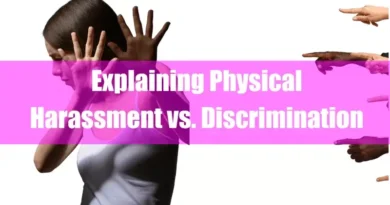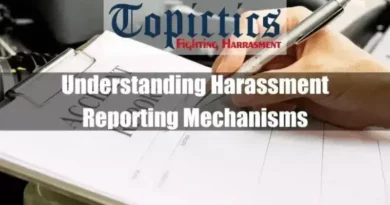Key takeaways from the article “Ombudsman: A Comprehensive Guide”:
- Ombudsmen are impartial investigators who handle complaints against organizations or individuals. They act as neutral and trusted figures, aiming to resolve disputes fairly and efficiently.
- There are different types of Ombudsmen, each focusing on a specific area. This includes government, business, healthcare, university Ombudsmen, and more specialized areas like military or human rights.
- Ombudsmen play a crucial role in ensuring fairness and accountability. They investigate complaints, mediate disputes, and recommend solutions. They can also identify and address systemic issues within organizations.
- While limitations exist, ombudsmen are a valuable resource for individuals. They provide an accessible avenue for those who feel they have been treated unfairly by powerful entities.
- The role of Ombudsmen is expected to evolve in the future. They will need to adapt to new challenges and leverage technology to remain effective.
I. Introduction to Ombudsman
A. What is an Ombudsman?
An Ombudsman, also known as an ombudsperson or public advocate is an independent and impartial official investigating complaints against an organization or individual. They function as neutral and trusted figures, aiming to resolve disputes fairly and efficiently, often through mediation or by making recommendations to the concerned entity. The term “ombudsman” (plural: ombudsmen) originates from the Swedish language, translating to “representative of the people.” This aptly captures the essence of their role, acting as a champion for individuals who feel those in power have unfairly treated them.
B. Historical Context and Global Presence:
The concept of an Ombudsman first emerged in Sweden in 1809, marking a significant step towards ensuring government accountability and protecting citizens’ rights. Over time, this model gained traction, and numerous countries established their Ombudsman institutions. Today, the Ombudsmen operate at various levels, including national, regional, local, and even within specific organizations like universities or businesses. Their specific mandates and jurisdiction may vary depending on the context. Still, the core principles of impartiality, fairness, and accessibility remain constant.
C. Types of Ombudsmen:
Although a unified structure doesn’t exist, Ombudsmen can be broadly categorized based on their focus and jurisdiction:
1. Government Ombudsmen:
These Ombudsmen investigate complaints lodged against government agencies, departments, and officials. They are crucial in scrutinizing the public sector’s actions, promoting transparency, and holding powerful entities accountable. Examples include the Office of the Ombudsperson for Financial Services (Canada) and the Parliamentary and Health Service Ombudsman (UK).
2. Business Ombudsmen:
Focusing on specific industries like banking, insurance, or telecommunications, these Ombudsmen address consumer protection, fair practices, and service quality complaints. Their interventions help ensure ethical business conduct and safeguard consumer rights. Examples include the Financial Ombudsman Service (UK) and the Australian Financial Complaints Authority (AFCA).
3. Healthcare Ombudsmen:
Advocating for patients’ rights within healthcare systems, these Ombudsmen investigate concerns about patient care, access to services, and medical ethics. They safeguard patient safety and ensure fair treatment within healthcare institutions. Examples include The Health Service Ombudsman (Ireland) and The Long-Term Care Ombudsman (US).
4. University Ombudsmen:
Operating within academic institutions, these Ombudsmen assist students with resolving concerns regarding academic issues, discrimination, and campus policies. They provide confidential support and facilitate conflict resolution within university communities. Examples include The Ombudsman Association of American Universities (OAAU) and The National Association of College and University Ombudsmen (NACUO).
5. Other Specialized Ombudsmen:
Beyond these core categories, various specialized Ombudsmen exist, including military ombudsmen for addressing soldiers’ concerns, children’s ombudsmen focusing on child protection issues, and human rights ombudsmen advocating for individuals’ fundamental rights.
D. Why are Ombudsmen Important?
Ombudsmen play a crucial role in addressing power imbalances and promoting societal fairness. They offer a much-needed avenue for individuals who feel powerless to voice their concerns against powerful institutions or individuals.
By investigating complaints impartially and seeking fair resolutions, they contribute to the following:
- Accountability and Ethical Conduct: By scrutinizing the actions of public and private entities, Ombudsmen ensure adherence to ethical standards and hold them accountable for their decisions. This helps instill public trust and discourages potential misconduct.
- Conflict Resolution and Systemic Change: Through mediation and constructive dialogue, Ombudsmen facilitate the resolution of disputes between individuals and organizations. They can also identify institutional and systemic issues and recommend reforms to prevent future grievances.
- Access to Justice and Empowerment: In many instances, accessing formal legal mechanisms can be daunting or expensive for individuals. Ombudsmen offer a readily accessible and often cost-free alternative, empowering individuals to seek redress and hold powerful entities accountable.
E. Key Themes Explored in this Article
This comprehensive exploration delves into the world of Ombudsmen, aiming to demystify their role and illuminate their significance. We embark on a journey to understand:
- The diverse landscape of Ombudsmen: Navigating the various types of Ombudsmen and their specific functions, from government watchdogs to university advocates and industry-specific complaint handlers.
- The intricacies of their work: Unveiling the investigative process, mediation techniques, and solution-focused approach employed by Ombudsmen.
- The impact and effectiveness of their interventions: Examining success stories, acknowledging challenges, and exploring methodologies for measuring the positive impact of Ombudsmen.
- The future of this crucial role: Considering how Ombudsmen adapt to evolving landscapes, leverage technology, and collaborate to safeguard fairness and accountability in an ever-changing world.
By engaging with these themes, we hope to build a nuanced understanding of the Ombudsmen’s role in fostering a more just and equitable society.
Also, read:
- How to Create an Anti-Retaliation Policy
- Fear of Reprisal in the Workplace
- Documenting Evidence in Harassment Cases: Best Practices
- Explaining DE&I Initiatives: An Ultimate Guide
II. Understanding the Role of an Ombudsman
Having explored the concept and diverse categories of Ombudsmen, let’s delve deeper into the specifics of their role. This section will address:
A. Who is eligible to make complaints to an Ombudsman?
Eligibility criteria vary slightly between different Ombudsmen, but generally:
- Individuals: Individuals who feel they have been unfairly treated by an organization or individual falling under the Ombudsman’s jurisdiction can lodge a complaint.
- Groups: In some cases, groups or organizations that share a common grievance can also file complaints, depending on the Ombudsman’s mandate.
- Scope of Issues: The specific types of issues addressed also vary. Some Ombudsmen handle many concerns, while others focus on specific areas like healthcare, finance, or education.
B. What can an Ombudsman do?
Ombudsmen possess a range of tools to investigate complaints and seek resolutions:
- Investigatory Powers: They can request information and documents from the concerned organization or individual to fully gather evidence and understand the situation.
- Mediation and Facilitation: Often, the Ombudsmen attempt to facilitate dialogue and understanding between the complainant and the entity involved, aiming for an amicable resolution.
- Recommendations and Solutions: If mediation fails, they can offer recommendations to the organization or individual to address the grievance fairly. Sometimes, recommendations may be binding depending on the Ombudsman’s authority.
- Limitations and Exclusions: It’s crucial to remember that ombudsmen may not have the power to change decisions directly or impose penalties. Their primary role is investigating, suggesting solutions, and advocating for fair treatment. Additionally, they may not handle certain issues, such as criminal matters or legal disputes best addressed through courts.
C. How does an Ombudsman work?
Here’s a typical workflow of an Ombudsman investigation:
- Complaint Intake and Initial Assessment: The process starts with the individual formally complaining, often through a website, phone call, or in-person visit. The Ombudsman assesses the complaint’s eligibility and scope.
- Investigation and Fact-Finding: If accepted, the Ombudsman gathers information from relevant parties, including documents, witness testimonies, and interviews. They maintain strict confidentiality throughout the process.
- Communication and Engagement: The Ombudsman keeps the complainant and the other party informed of the investigation’s progress and may facilitate communication attempts to reach a mutually agreeable solution.
- Making Recommendations and Reaching Solutions: Based on the findings, the Ombudsman may propose solutions or recommendations to address the grievance. This often involves suggesting amendments to decisions, policy changes, or apologies.
- Monitoring and Follow-up: The Ombudsman may monitor the implementation of their recommendations and follow up with the parties involved to ensure their satisfaction.
D. Key Qualities and Characteristics of an Effective Ombudsman
To fulfill their critical role effectively, Ombudsmen need to possess specific qualities:
- Neutrality, Impartiality, and Independence: These are paramount. Ombudsmen must be seen as objective and unbiased, free from any pressure or influence from the entities they investigate.
- Confidentiality and Trust: They must build trust with complainants by ensuring strict confidentiality. This encourages individuals to come forward with their concerns openly.
- Fairness, Accessibility, and Responsiveness: The complaint process should be fair, accessible, and responsive to all individuals regardless of their background or situation.
- Expertise and Problem-Solving Skills: A deep understanding of the relevant systems, regulations, and potential solutions is crucial to navigating complex situations and proposing effective remedies.
- Strong Communication and Interpersonal Skills: The ability to communicate effectively, actively listen, build rapport, and navigate challenging conversations is essential for successful mediation and conflict resolution.
By embodying these qualities and following a thorough investigative process, the Ombudsmen can contribute significantly to addressing grievances, promoting fairness, and ensuring accountability within various sectors.
Also, read:
- Understanding Power Dynamics
- Demystifying Sexual Advances: Beyond Yes or No
- Explaining Unwelcome Sexual Advances
- Ultimate Bystander Intervention Training (BIT)
III. Different Types of Ombudsmen and their Specific Functions

As we dive deeper into the world of Ombudsmen, let’s explore the specific functionalities and areas of expertise held by different types:
A. Government Ombudsmen:
Focus: Investigating complaints against government agencies, departments, and officials at national, regional, or local levels.
Functions: Examining decisions, procedures, and actions of government entities for fairness, transparency, and compliance with laws and regulations. They can recommend policy changes, service improvements, and even compensation for individuals wronged by administrative errors.
Examples:
- The Office of the Ombudsperson for Financial Services (Canada) investigates complaints about banks, insurance companies, and other financial institutions.
- The Parliamentary and Health Service Ombudsman (UK) holds government departments and agencies accountable for the quality of service they provide to the public.
B. Business Ombudsmen:
Focus: Addressing complaints lodged against businesses in specific industries like banking, insurance, telecommunications, and utilities.
Functions: Investigate concerns related to consumer protection, fair practices, billing disputes, and service quality. They can advocate for fair resolutions, recommend changes to business practices, and even help mediate disputes between consumers and companies.
Examples:
- The Financial Ombudsman Service (UK) handles complaints against banks, building societies, credit card companies, and other financial institutions.
- The Australian Financial Complaints Authority (AFCA) investigates and resolves complaints about financial businesses such as banks, insurers, and superannuation trustees.
C. Healthcare Ombudsmen:
Focus: Investigating concerns about patient care, access to services, and medical ethics within healthcare systems.
Functions: Addressing complaints regarding misdiagnosis, communication issues with medical professionals, billing disputes, and concerns about privacy and confidentiality. They can advocate for patients’ rights, mediate disputes with healthcare providers, and recommend improvements to healthcare systems.
Examples:
- The Health Service Ombudsman (Ireland) investigates complaints about Ireland’s public and private healthcare services.
- The Long-Term Care Ombudsman (US) advocates for residents of long-term care facilities, investigating concerns about quality of care, resident rights, and financial exploitation.
D. University Ombudsmen:
Focus: Assisting students with resolving concerns regarding academic issues, discrimination, sexual misconduct, and campus policies.
Functions: Providing confidential support, facilitating dialogue between students and university administrators, mediating disputes, and advocating for fair and equitable treatment within the university community. They may also work on systemic issues impacting student wellbeing and recommend policy changes.
Examples:
- The Ombudsman Association of American Universities (OAAU) provides resources and support to university Ombudsmen across the US.
- The National Association of College and University Ombudsmen (NACUO) promotes ethical standards and best practices for university Ombudsmen.
E. Other Specialized Ombudsmen:
Beyond these core categories, several specialized Ombudsmen exist, each catering to specific needs:
- Military Ombudsmen: Assist service members and their families with navigating military bureaucracy, addressing concerns about benefits, healthcare, and other issues.
- Children’s Ombudsmen: Advocate for the rights and well-being of children, investigating complaints of abuse, neglect, and discrimination.
- Human Rights Ombudsmen: Promote and protect human rights, investigate violations, and work towards systemic change to uphold fundamental rights.
Understanding the specific focus and functions of each type of Ombudsman is crucial in determining who can assist with your particular concern. Additionally, it’s important to remember that Ombudsmen’s specific powers and procedures may vary depending on their jurisdiction and mandate.
Also, read:
- Demystifying Harassment and 16 Types of Harassment
- Cultural Norms and Harassment: Understanding the Link
- Understanding Harassment Reporting Mechanisms
- The Role of Empathy in Harassment
IV. The Impact and Effectiveness of Ombudsmen

With a clearer understanding of their roles and functions, let’s explore the impact and effectiveness of Ombudsmen across various contexts.
A. Success stories and case studies:
Numerous examples showcase the positive impact of Ombudsmen interventions, both for individuals and larger systems:
1. University of California, Berkeley: Reinstating a student unfairly expelled
A graduate student at UC Berkeley faced expulsion after being accused of academic dishonesty. Feeling the accusation was unfounded, the student contacted the university’s Ombudsman. Through diligent investigation and mediation, the Ombudsman found inconsistencies in the evidence and advocated for a case review. As a result, the expulsion was overturned, and the student was reinstated with no academic penalty. This intervention rectified an injustice and highlighted the need for clearer processes and evidence standards in disciplinary cases.
2. Financial Ombudsman Service (UK): Recovering mis-sold PPI for a customer
A customer in the UK had been unknowingly sold Payment Protection Insurance (PPI) with their mortgage, a practice later deemed unfair by regulators. Despite attempts to reclaim the mis-sold product directly, the customer faced lengthy delays and unresponsiveness from the bank. After reaching out to the Financial Ombudsman Service, the Ombudsman investigated the case and found in favor of the customer. As a result, the bank was required to refund the full cost of the PPI, along with compensation for the inconvenience and distress caused. This case demonstrates the Ombudsman’s power to hold financial institutions accountable and protect consumer rights.
3. New York State Office of Mental Health (OMH) Ombudsman: Improving care for a resident in a psychiatric facility
A resident in a New York State psychiatric facility raised concerns about inadequate staffing, medication mismanagement, and a lack of respect from staff. Reaching out to the OMH Ombudsman, the resident found a compassionate and supportive advocate. The Ombudsman investigated the situation, documenting deficiencies in care and advocating for improvements. This intervention led to increased staffing levels, more personalized care plans, and enhanced staff training, ultimately improving the resident’s well-being and the overall quality of care.
Addressing individual grievances: An Ombudsman might help a citizen receive proper medical treatment after being wrongly denied by a healthcare provider. Or, they might assist a student facing unfair disciplinary action at their university, ensuring a fair and impartial hearing. Such interventions bring tangible relief and restore justice for individuals who feel their voices are unheard.
Promoting systemic change: Ombudsmen can identify systemic issues within organizations or government entities by investigating recurring complaints. For instance, their findings might reveal discriminatory practices in hiring or unfair billing procedures in a particular industry. Ombudsmen can contribute to broader positive system changes by highlighting these issues and recommending reforms.
B. Challenges and limitations:
Despite their valuable contributions, Ombudsmen also face certain challenges:
- Awareness and accessibility: Not everyone knows the existence and role of Ombudsmen, potentially limiting their reach and impact. Additionally, navigating the complaint process might seem daunting for some individuals. Raising awareness and ensuring easy access to information are crucial for maximizing their effectiveness.
- Enforcement power and resource constraints: While some Ombudsmen can recommend binding solutions, others rely on persuasion and cooperation from the targeted entity. Limited resources can also hinder their ability to investigate complex cases thoroughly.
- Maintaining neutrality and independence: In highly politicized environments or when powerful entities are involved, upholding neutrality and independence can be challenging. Ensuring transparency and clear procedures helps address these concerns and maintain public trust.
C. Measuring effectiveness and accountability of Ombudsmen:
To assess their impact and ensure accountability, Ombudsmen utilize various approaches:
- Performance indicators: They track data on the number of complaints received, resolutions achieved, and systemic changes recommended. Analyzing these metrics helps identify areas for improvement and demonstrate their value.
- Transparency and public reporting: Many Ombudsmen publish annual reports summarizing their activities, findings, and recommendations. This transparency fosters public trust and allows scrutiny of their effectiveness.
- External review and oversight mechanisms: In some cases, independent bodies regularly review Ombudsmen’s performance and procedures, ensuring adherence to ethical standards and best practices.
D. The future of Ombudsmen:
As societies evolve and new challenges emerge, Ombudsmen must adapt and innovate to remain relevant and effective:
- Adapting to evolving landscapes: Responding to emerging issues like online privacy concerns or algorithmic bias in decision-making requires new approaches and expertise within the Ombudsman institution.
- Leveraging technology and innovation: Utilizing technology for digital complaint intake, data analysis, and communication can enhance accessibility and efficiency.
- Strengthening collaboration and knowledge sharing: Sharing best practices and collaborating across different Ombudsman institutions can enhance their capacity and collective impact.
The Ombudsmen play a vital role in upholding fairness, ensuring accountability, and advocating for the rights of individuals within various sectors. Recognizing their achievements, understanding their limitations, and supporting their adaptation to a changing world is crucial for maximizing their positive impact and promoting a more just and equitable society.
Also, read:
- 20 Quid Pro Quo Harassment Examples and How to Stop Them
- How to Prove Quid Pro Quo Harassment: 13 Powerful Evidences
- Quid Pro Quo Harassment vs. Hostile Work Environment Harassment
- Is Quid Pro Quo Illegal? 21 Accused Celebrities Examples
V. Conclusion

A. Recap of key points and takeaways:
This exploration of the world of Ombudsmen has highlighted their essential role in promoting fairness, accountability, and positive change. We’ve delved into the different types of Ombudsmen, their specific functions, and the impact they can have on both individual cases and systemic issues. Key takeaways include:
- Ombudsmen serve as impartial and independent authorities investigating complaints against organizations and individuals.
- Their diverse functions cater to various sectors, from government and healthcare to businesses and universities.
- They contribute significantly by investigating grievances, advocating for fair treatment, and recommending systemic improvements.
- While facing challenges like awareness and resource constraints, they utilize performance indicators, transparency, and external review to ensure accountability.
B. Importance of understanding and supporting Ombudsmen:
Recognizing the importance of Ombudsmen is crucial for promoting a just and equitable society. Their accessibility empowers individuals to seek redress against powerful entities, fostering trust and a sense of fairness. Supporting them through awareness campaigns, adequate resources, and clear legal frameworks allows them to function effectively and maximize their positive impact.
C. The role of Ombudsmen in promoting fairness, accountability, and positive change:
Ombudsmen are vital guardians of fairness and accountability, ensuring institutions adhere to ethical standards and treat individuals justly. Their ability to investigate, mediate, and advocate empowers individuals while identifying and tackling systemic issues within organizations. As societies evolve and new challenges emerge, Ombudsmen must adapt and innovate to maintain relevance and foster a more just and equitable world.
Also, read:









